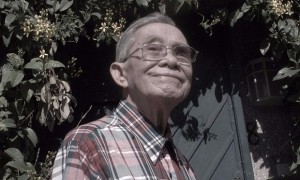THE MEDIA called him “senator,” “patriot,” “statesman,” “super lawyer,” “wonderful preacher,” among other accolades.
Indeed, he was all of that.
But Jovy was more than all the hallelujah’s thrown his way; he was very human, subject to the flights of optimism and depths of pessimism that ordinary mortals are heir to.
I witnessed that optimistic quality one turbulent night in 1992 when we were flying back to Manila on a small plane from a political sortie in the Visayas.
As the plane zigzagged through the dark clouds, I heard Jovy, who was seated in front of me, whistling an upbeat refrain from one of Mozart’s famous concertos.
He was trying to make our spirits soar above this mortal fear of not making it through the turbulence buffeting our plane. And to some extent, he succeeded.
But Jovy could just as easily succumb to despondency, as I saw him do on one occasion in the privacy of his home office in Pasig City.
Informed that some of his important political allies had abandoned him for better pastures, Jovy’s already shrunken shoulders—from injuries sustained in the 1971 Plaza Miranda bombing—slumped even more.
Fortunately, he was not one to allow sorrow take over his disposition for public service. After prayer, Jovy bounced back from depression and resumed his leadership role—no longer in the political arena, but in the wider and more challenging field of spreading the word of God as a layman.
That was Jovy to me: An ordinary mortal whose head knocked at the clouds, but whose feet were firmly planted on the ground.


